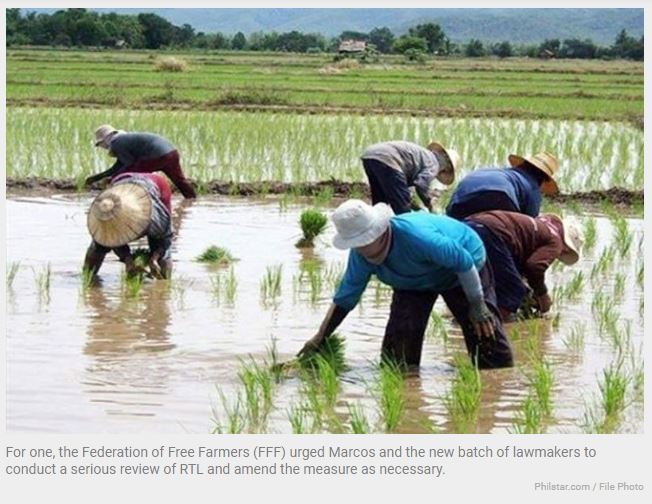Philippines: RTL repeal risks farmers’ productivity, inflation
MANILA, Philippines — Any move to suspend or repeal the Rice Tariffication Law (RTL) is risking the chance of farmers to improve their productivity and for inflation to remain manageable as consumers enjoy cheap rice prices, according to Socioeconomic Planning Secretary Karl Chua.
He said the RTL, which opened the floodgates for cheap rice imports, is the best model that the country has for both farmers and consumers.
During the election campaign, farmer groups called on the presidential candidates to take a stand on RTL and support its reassessment, suspension and eventual repeal.
Presumptive president Ferdinand Marcos Jr. earlier said he favors the repeal of the RTL.
For one, the Federation of Free Farmers (FFF) urged Marcos and the new batch of lawmakers to conduct a serious review of RTL and amend the measure as necessary.
Chua argued that the RTL was able to address both the needs of consumers for cheaper rice and of the farmers through the excess tariff revenues that go to the Rice Competitiveness Enhancement Fund (RCEF).
“Those calling for the removal of the RTL risk taking away what we are giving to farmers to improve their productivity. Further lowering the price of rice for all Filipinos is really possible if we help farmers improve productivity,” Chua said.
“That is exactly what the RTL is doing by providing them with mechanization, seeds, and other support,” he said.
The RCEF has an annual appropriation of P10 billion to fund programs for farm mechanization, seed development, propagation and promotion, credit assistance, and extension services.
Any excess in tariff revenues are allocated for financial assistance to rice farmers, titling of agricultural rice lands, expanded crop insurance program, and crop diversification program.
Last year, the government collected P18.9 billion from rice tariff collections.
Chua also contradicted claims that the surge in imports hurt local production as palay output went up by 3.5 percent to 20 million metric tons in 2021.
Further, the country’s chief economist emphasized that the RTL has been crucial in managing inflation.
Before the law’s enactment, rice was the single biggest contributor to inflation. As of now, rice has a negative to minimal contribution to the headline rate.
“Even during the first quarter, when rice production slightly declined, inflation of rice was below two percent. That’s because we are able to temporarily import,” Chua said.
“Importation is a way to address supply and price volatility. If we did not have that, people would have faced much higher inflation today,” he said.
Chua said the incoming administration should continue the RTL’s implementation.
“The RTL is the best model to help both farmers and consumers. We are proposing the same model for livestock, poultry, and dairy, and we hope to do that for other crops as well,” he said.
Source: https://www.philstar.com/business/2022/05/20/2182298/rtl-repeal-risks-farmers-productivity-inflation


 Thailand
Thailand




